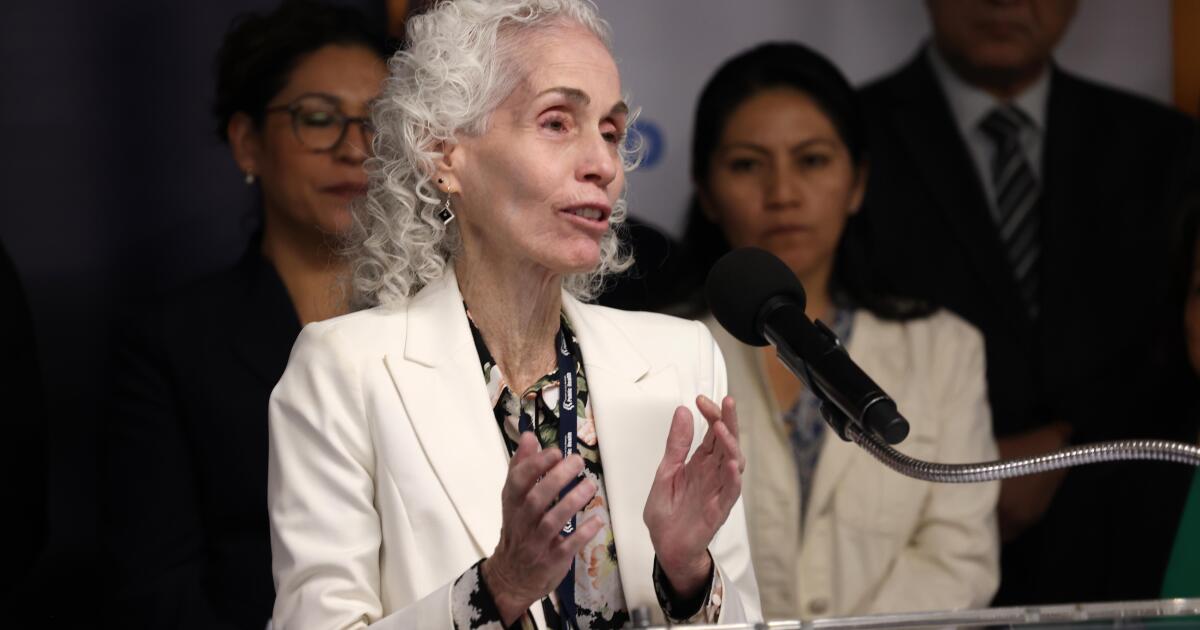Dallas, TX
Early voters mostly supported Dallas’ propositions. Here’s what they rejected

Early voters rejected efforts to increase the pay for Dallas’ leaders but mostly approved of 13 other propositions backed by the City Council, according to unofficial preliminary election results.
Just 42% of early voters supported Proposition C. It would increase the mayor’s salary to $90,000 and the council members’ pay to $110,000.
There are 18 propositions on the Nov. 5 election ballot for Dallas voters. Four of them, Propositions R, S, T and U, were successfully petitioned onto the ballot through signature-gathering drives led by two nonprofit groups. Proposition A is a city code amendment the City Council sent to voters. The other 13 propositions were the result of a yearlong process to update the city’s charter. They include raising salaries, banning term-limited former council members from being eligible to be elected again and adding a preamble at the beginning of the charter.
Dallas’ charter is typically updated once every 10 years. It determines the powers of city government and how it operates and is structured.
The 15-member Dallas City Council was not in alignment on recommendations for how voters should weigh in on the entire slate of 18 propositions and there are no organized support or opposition groups for propositions A – Q.
Mayor Eric Johnson and council member Cara Mendelsohn told voters to reject all 18 propositions saying they felt too many of the proposals were “unwise, unnecessary and underdeveloped.” Johnson, Mendelsohn and the rest of the City Council urged voters not to support Propositions S, T and U, which would set new mandates for police spending and the city manager’s job status and bonuses, as well as make it easier for residents to sue the city.
Council members Adam Bazaldua, Zarin Gracey, Jaime Resendez and Chad West have publicly supported decriminalizing low levels of marijuana in Dallas, citing such arrests disproportionately affecting Black and Latino communities and concern it diverts police attention away from more serious crimes. Proposition R would ban Dallas police from arresting people on suspicion of carrying less than four ounces of marijuana.
West, on his X account last month, said he voted for Propositions A-R and against S, T, and U.
If none of the propositions pass, a new slate of proposals to update the charter could go to voters as soon as May. Otherwise, the soonest voters could consider new charter amendments would be in another two years.
Here’s a summary of the propositions backed by the majority of the City Council:
Proposition A has 68% of the early votes. This proposal makes a series of changes impacting the pension system for civilian employees as well as the board that oversees it. It adds language to the Dallas code that puts term limits for six of the seven pension board members. This amendment would eliminate a cap on the maximum amount the city can contribute, increase the contribution percentage for some members, and add language allowing the City Council to approve giving lump-sum payments to the pension fund.
Proposition B has 71% of the early votes. This proposal adds a preamble to the beginning of the city charter, which is essentially a mission statement saying Dallas is an equitable democracy, comprised of representatives that act to make the city fair, equitable, just, and safe for all residents.
Proposition C has 42% of the early votes. This proposal would raise the annual salary of Dallas’ mayor from $80,000 to $110,000 and the pay of the 14 district council members from $60,000 to $90,000. The change would go into effect starting in January. It would also allow yearly adjustments to the salaries equal to the year-over-year percentage increase in the local consumer price index.
Proposition D has 65% of the early votes. This proposal would remove references in the charter requiring City Council elections to be held in May and allow the City Council to set the election date via a resolution or ordinance. State legislators must separately also approve allowing Dallas to move council elections from May.
Proposition E has 69% of the early votes. This proposal would eliminate the ability of prior mayors or council members coming back to run for City Council after previously being elected and serving the maximum number of terms.
Proposition F has 67% of the early votes. This proposal clarifies that the city secretary and city auditor can hire and fire all employees in their offices. The charter currently just lists assistants.
Proposition G has 70% of the early votes. This would add language to the charter to restrict who can be appointed by a City Council member to the redistricting committee. The new criteria would disqualify relatives of council members, registered city lobbyists, people who have contractual obligations with the city, and others with ties to the city or elected officials.
Proposition H has 51% of the early votes. This proposal eliminates the requirement that members of the Redistricting Commission, City Plan Commission, Civil Service Board, and Park and Recreation Board be registered to vote, qualified voters, or qualified taxpaying citizens. Removing this requirement would put the eligibility of members who serve on these four groups in line with the rest of Dallas’ around 50 volunteer citizen boards and commissions.
Proposition I has 53% of the early votes. This proposal would increase the time people have to collect valid voters’ signatures on petitions to create a ballot proposition for a new Dallas ordinance in the city code or to change an existing one. The deadline extends from 60 days to 120. This proposition would also lower the number of valid voters’ signatures necessary on petitions. The minimum requirement drops from 10% of Dallas-qualified voters to 5%. The current 10% requirement equals around 70,000 signatures.
Proposition J has 61% of the early votes. This proposal would allow the City Council to replace appointed members of boards and commissions at any time before the end of that board or commission member’s two-year term via a majority council vote.
Proposition L has 69% of the early votes. This change would create a new chapter in the charter, moving the Inspector General division out of the city attorney’s office and establishing it as its own office. The Inspector General would report directly to the City Council rather than the city attorney.
Proposition O has 79% of the early votes. This proposal would update the charter to clarify the current position of Dallas associate municipal court judges and state that their qualifications are the same as municipal judges.
Proposition P has 53% of the early votes. This proposal would eliminate a charter requirement for a city employee who appeals their demotion or termination to an administrative law judge to pay half the costs for having that official conduct an appeal hearing.
Proposition Q has 71% of the early votes. This proposal approves a series of changes for Dallas’ charter to conform to state law and city code, correct and clarify language and match actual city practices.

Dallas, TX
GOP candidates for Texas House face off in Collin County, Park Cities, North Dallas

The fiercest legislative primary fights Tuesday in North Texas were inside the GOP.
In Dallas County, two moderate GOP incumbent representatives faced challengers after being censured by their own county party.
In Collin County, several Republican state House members were fending off rivals running to their right.
The Dallas Morning News will provide live election results this evening when the polls close at 7 p.m. Results will be updated throughout the evening for statewide races and Dallas, Collin, Denton, Ellis, Kaufman, Rockwall and Tarrant counties.
Dallas County, House District 108
Republican Morgan Meyer, first elected in 2014, was challenged by attorney Sanjay Narayan in a district that includes the Park Cities, Oak Lawn and Preston Hollow.
Narayan criticized Meyer for backing renewable energy expansion and for being censured by the Dallas GOP last year.
Meyer was among House Republicans targeted after disputes over the House speaker vote and chamber rules. He and other lawmakers called the censure effort unconstitutional.
In the campaign, Meyer focused on property tax relief and emergency preparedness after the Camp Mystic tragedy.
Small business owner Allison Mitchell is unopposed in the Democratic primary.
Dallas County, House District 112
Republican Angie Chen Button, who has represented the district covering parts of Dallas, Richardson and Garland since 2009, drew three primary opponents.
Button has highlighted her support for small businesses and public schools and her bipartisan record. A senior member of the Ways and Means Committee, she would play a key role in the state’s property tax debate if reelected.
Dallas-area delegation in the Texas House of Representatives on Sunday, May 30, 2021, showing State Rep. Angie Chen Button, R-Garland, in the chamber.
Bob Daemmrich / Bob Daemmrich/CapitolPressPhoto
Opponents Chad Carnahan and Tina Price attacked Button for being censured by the Dallas GOP last year, a move she and other lawmakers have criticized as an internal party power struggle.
Carnahan, a businessman, said he wants to lower property taxes and prevent Shariah in Texas.
Price said she would improve public schools and spur the re-use of old buildings. Also in the GOP race: Perry E. Barker Sr.
Democrat Zach Herbert was unopposed.
Collin County, House District 61
Two Republicans are seeking to represent the district that covers most of McKinney and parts of Frisco and Celina.
Incumbent Keresa Richardson, who was elected in 2024, and former state Rep. Frederick Frazier both support eliminating property taxes.
Richardson, an entrepreneur, said she would expand the Texas voucher-like program for education.
Frazier, a former police officer and McKinney City Council member, was more cautious about expanding the program.

Frederick Frazier speaks as Rep. Keresa Richardson looks on during a candidate forum for Republicans in Collin County ahead of the March primary election at Prestonwood Baptist Church in Plano, Texas, Tuesday, February 10, 2026.
Anja Schlein / Special Contributor
Two political newcomers, Jackie Bescherer and Brittany Black, are running in the Democratic primary. Both oppose Texas’ voucher program and vow to increase public education funding.
Collin County, House District 67
Republican Rep. Jeff Leach, first elected in 2012, faces Matt Thorsen in a district that includes parts of Plano, Allen, McKinney and Melissa.
Leach has highlighted his conservative record, including legislation barring Shariah in Texas courts. He also served as a House impeachment manager during Attorney General Ken Paxton’s 2023 trial, a role he has defended amid backlash from activists.
Thorsen, a small business owner and former youth pastor, helped lead the effort to censure Leach last year. He has criticized Leach’s impeachment role and accused him of siding with Democrats on House rules.
Both support eliminating property taxes, expanding education savings accounts and oppose the development formerly known as EPIC City. Two Democrats are also running, though the district has leaned Republican.
Collin County, House District 70
Three Republicans are competing for the nomination to run against incumbent Democrat Mihaela Plesa, who is running unopposed in her party’s primary.
Democrat Mihaela Plesa responds to questions during a District 70 Candidate Forum hosted by Raise Your Hand Texas at Plano ISD Academy High School in Plano on Wednesday, Oct. 19, 2022.
Liesbeth Powers / Staff Photographer
George Flint, a former district judge and Collin County Republican Party Chair, emphasized eliminating property taxes and securing the border in his campaign.
Jack Ryan Gallagher, an attorney, said he would attract companies to North Texas, improve public schools and partner with local law enforcement if elected.
Michael Hewitt, an attorney, said he would gradually lower property taxes and work to keep Texas a business-friendly state.
The district includes parts of Plano, Richardson and Far North Dallas.
Dallas, TX
Dallas Fed says ‘older, experienced workers’ likely have less cause for concern about AI job displacement
Artificial intelligence hasn’t yet triggered the broad job losses many feared — at least not for experienced workers.
That’s the takeaway from a new analysis by J. Scott Davis, an assistant vice president at the Federal Reserve Bank of Dallas, who examined employment and wage trends in industries most exposed to artificial intelligence.
Davis argues the data tell a more nuanced story — one that’s challenging the traditional career ladder, and helping older employees earn a bit more.
Since ChatGPT’s debut in late 2022, overall US employment has risen about 2.5%, according to Davis’ analysis, which uses an AI exposure index developed by researchers and published in the Strategic Management Journal. At the same time, employment in the sectors most exposed to AI has slipped by roughly 1%.
Wages tell a different story. The average weekly pay nationwide has climbed 7.5% since fall 2022. And across the most AI-exposed industries, wages have grown faster, up 8.5%.
If AI were simply replacing workers, both employment and wages would likely be falling, Davis wrote.
Instead, Davis points to a divide between “codified” knowledge — the kind learned from textbooks and in university courses — and “tacit” knowledge gained from hands-on work experience.
“Returns on job experience are increasing in AI-exposed occupations,” Davis wrote. “Young workers with primarily codifiable knowledge and limited experience will likely face challenging job markets.”
Using Bureau of Labor Statistics data, his analysis found that the occupations most exposed to AI tend to offer larger pay premiums for experienced workers.
In roles with less hands-on experience, AI exposure is associated with weaker wage growth, he wrote.
Workers under 25 in AI-exposed industries have also experienced employment declines, according to Davis’ analysis.
“There appears to be less cause for concern about widespread job displacement for older, experienced workers,” he wrote.
A less dire picture… so far
The findings offer a counterpoint to the more apocalyptic predictions about AI’s impact on the labor market.
Last week, Citrini Research published a memo, written from the hypothetical perspective in 2028, that theorized how AI could crush the US jobs market and trigger a broad-based market collapse.
“What if our AI bullishness continues to be right…and what if that’s actually bearish?” the memo asked.
Top executives inside the AI companies are worried about jobs, too.
Dario Amodei, the CEO of Anthropic, the company that runs Claude, warned that AI could eliminate 50% of entry-level office jobs. OpenAI’s head of product, Olivier Godement, said the life sciences, customer service, and computer engineering industries were all about to get automated. And Boris Cherny, the creator of Claude Code, said that he doesn’t believe the job title “software engineer” will exist next year.
For now, at least, the Dallas Fed paints a different picture of today’s jobs market. It points to less mass displacement and market ruptures — and more power for employees who already have their foot in the door.
Dallas, TX
Daisy’s Memorial Dog Strick Library| The Post

A tribute to a family dog is now helping other animals. Daisy’s Memorial Dog Stick Library encourages dogs to take and leave sticks on their walks near White Rock Lake. Kimberly Haley-Coleman stopped by The Post to talk about the tribute.
Posted
-

 World6 days ago
World6 days agoExclusive: DeepSeek withholds latest AI model from US chipmakers including Nvidia, sources say
-

 Massachusetts6 days ago
Massachusetts6 days agoMother and daughter injured in Taunton house explosion
-

 Denver, CO6 days ago
Denver, CO6 days ago10 acres charred, 5 injured in Thornton grass fire, evacuation orders lifted
-

 Louisiana1 week ago
Louisiana1 week agoWildfire near Gum Swamp Road in Livingston Parish now under control; more than 200 acres burned
-

 Oregon4 days ago
Oregon4 days ago2026 OSAA Oregon Wrestling State Championship Results And Brackets – FloWrestling
-

 Florida3 days ago
Florida3 days agoFlorida man rescued after being stuck in shoulder-deep mud for days
-

 Maryland3 days ago
Maryland3 days agoAM showers Sunday in Maryland
-

 Culture1 week ago
Culture1 week agoTry This Quiz on Thrilling Books That Became Popular Movies

























